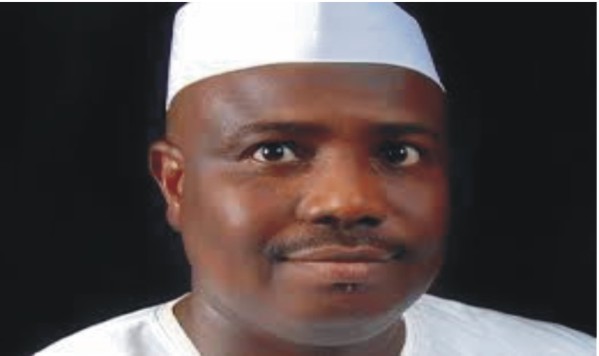Sydney O. Madukwém, 07069123994
On the 6 June 2011, the 7th National Assembly came to be with the swearing in of Senator David Mark again as the Senate President, while Honourable Aminu Waziri Tambuwal was overwhelming elected as the Speaker of the House of Representatives.
In his acceptance speech, the Senate President, David Mark said inter -alia “ his session of the Senate and National Assembly stands on the threshold of history. By 2014, Nigeria would have existed for 100 years as a country. History beckons on us to lay foundation for transformation agenda of development. He added “this calls for landmark legislations to change the course of history, for the present and future generations.”
But in what looked like an indictment of the 6th House of Representatives, ebullient Speaker, Alhaji Aminu Tambuwal said among other things, “we acknowledge that dignity and integrity of the House have been called to question. We must possess the humility that commands introspection, accept. responsibility and ask for Nigerians to forgive us”
Stamping his recognition and solidarity, President Goodluck Jonathan, in a letter of congratulation to Mark and Tambuwal said “the choice o the two principal officers is an eloquent testimony of their leadership qualities and commitments” adding, “I look forward to working harmoniously with the National Assembly to advance development and lift the country out., of the present under-development”.
It is an unhidden fact that the standpoint of the National Assembly and the Executive Arm is in tandem and converges on the fundamental and overall overhaul or restructuring of the Nigerian Federation.
At the plenary to mark its 211 anniversary held on the 6 June, 2013 exactly two years after its inauguration, the Senate President extolled the Senate, condemning those beating drums of war and warning them to stop it, as no nation can survive two civil wars. Similarly the Speaker at the plenary on the same day noted that insecurity in the country was a product of vicious circle of poverty and unemployment’, which should he tackled vigorously by the government.
Although the Legislature and the Executive are distinct, independent, however, the prevailing understanding, cooperation and harmonious relationship should not be sacrificed, for Nigerians cannot forget in hurry the mutual suspicion, antagonism and intrigues that characterized the relationship between the Legislature and the Executive in the past, with its attendant instability in the leadership of the then National Assembly.
of course, the cohesion and stability of the National Assembly is acknowledged to be a confirmation of the ingenuity and competence of the House leadership. This is obviously not without the encouragement and support of the Executive.
Today the National Assembly can vouch for the President that does not teleguide, instigate, interfere or meddle in the business of Legislation. In reciprocation, simple courtesy too, the National Assembly, especially the youthful, exuberant House of Representative should not deliberately flex muscles or engage in power show-down with the Presidency. For instance, section 11:3 of the amended 1999 constitution, which dwells on the removal of the President and Vice President is very clear, not cumbersome, does not need to be amended or padded to fast-track the removal of the President: It is also not in the interest of the National Assembly and our much cherished Democracy to insert certain lop-sided provisions targeted at a particular individual or group. The current confrontation, arm-twisting and sizing-up are an ill-wind.
As the National Assembly resumed from break, it must be reminded that the expectations of Nigerians are high. This time may well he considered Question and Answer Session. The common refrains and questions Nigerians are asking and begging for error-proof answers from our various representatives are: will the National Assembly bequeath Nigeria with truly the Peoples’ Constitution? Will the constitution revolutionalize and entrench true Federalism? Will the National Assembly heal the chasm of the civil war, heal the long years of marginalization meted out to the South East Zone, by equitably creating at least one additional state in the zone without excuses? Will the constitution enshrine equal citizenship in practice, equal level playing field and stamp out ethno-religious, indigene/settler boundaries? Will the National Assembly grant autonomy to the 774 councils?
Nigerians are eagerly watching, waiting and only time will tell whether indeed the National Assembly will continue to enjoy the good will and confidence of Nigerians or not. But on a more serious note, this is a golden opportunity to prove the advocates of a Peoples’ Constitution via a referendum or a National Conference right or wrong.
About The Author
You may also like
-
Court Convicts Three for Unlawful Waste Disposal in Owerri
-
SHOW OF SHAME AS NAVAL OFFICERS BRUTALIZE PRIEST.
-
DR. IFEANYI ONYEMA CALLS ON OHAJI/EGBEMA PDP LEADERS AND MEMBERS TO KEEP FAITH WITH THE PARTY, Says Party Is Gradually Making A Comeback
-
OPERATION HEAL THE LAND HITS OWERRI WEST. by Innocent Osuoha
-
Rotary Club of Mbaise honours Mbaise Anglican bishop, Rt Rev Ogunedo with Community Service Award




